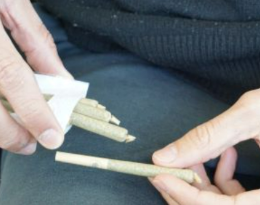What You Can Do To Help a Recovering Addict

Drug problems can easily take hold. Maybe you have a loved one who is a recovering addict. It may be hard to know how to truly connect with and help them. Even if they’ve gone to a great sober home with an experienced staff, like the staff at New Life House, they may still have trouble with everyday life.
So how can you help your loved one, even if you don’t have professional experience? Researching the right way to truly assist them in their life is a start.
Here are some things you can do to make life easier for a recovering addict.
Trust Each Other
One of the best ways to get someone to open to you is to prove that they can trust you. This can be hard when you’re dealing with something as damaging as drug or alcohol addiction. Making sure the other party trusts you can help them feel like they’re not being controlled, they’re being helped.
Avoid nagging your friend on their responsibilities or habits. Even when you’re stressed, refrain from exaggerating or yelling at them because of their situation. You also should be careful to not participate in addictive behaviors yourself—this will help them know you are trustworthy, and not hypocritical.
Be Communicative
Always be open and honest when you are communicating with your loved one. When telling them how their actions have affected you, make sure not to be critical. They will be more willing to respond if you are constructive and not berating them.
This tip goes both ways as well. If your loved one is trying to tell you something, be open to what they are saying. This may mean that they will discuss things about you, but you should keep an open mind. Always be receptive when they are trying to tell you how to help them.
Respect Their Privacy
Ultimately, it is a recovering addict’s choice to divulge any of their information. Do not disclose their problems to others. If your loved one chooses not to tell you details of their life or their therapy sessions, do not feel entitled to their information. Let them have some breathing space. They will come to you when they are ready.
Get Help for You
Even if you don’t struggle with addiction, getting help has great effects for many people. Therapy is a great choice if you need to talk about things going on with drug addiction in your life, or any regular problems you may need help with. Dealing with drug and alcohol addiction is stressful for everyone involved. Don’t feel ashamed if you need to seek help for your own problems.
Be Patient
Change doesn’t happen overnight. This goes for any issue, not just addiction. Recognize the amount of effort your friend is putting into their recovery and stay positive about the results. Everyone goes through their own journey, and they are all equally valid, no matter how long it may take.
Many people also relapse during their recovery. This doesn’t mean that progress isn’t being made anymore—regressing is just another step towards recovery. Be patience with your loved ones.
In Conclusion
If you frequently take care of a family member or friend with an addiction, there are ways you can help. Though you should never take on the responsibility of a therapist or counsellor. Always encourage your loved ones to seek help to reduce the damage to themselves. Also, don’t be afraid to get help for yourself if you need it.
Stay patient and be open and honest with your loved one. This will help them know they are safe, they are loved, and they will thank you for it when they have ultimately recovered.





